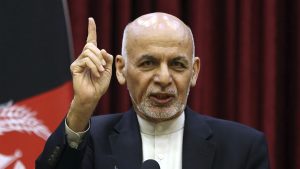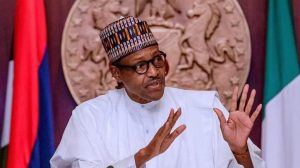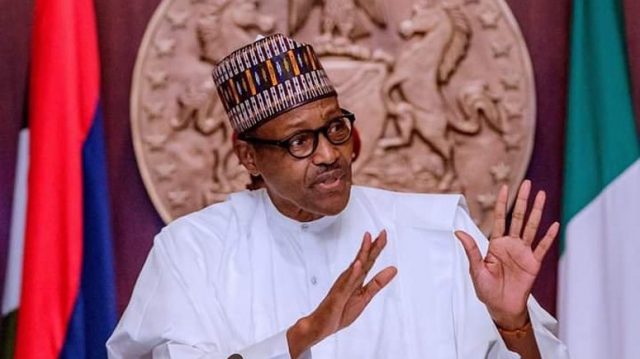… behind Iran and Afghanistan as Republic of the Congo, celebrates second year in a row without an attack
The Global Terrorism Index (GTI) is a comprehensive study analysing the impact of terrorism for 163 countries and which covers 99.7 per cent of the world’s population. The news is that NIGERIA is 3rd world country mostly impacted by terrorism ranked by number of deaths. Again, NIGERIA is 3rd in the top ten countries for economic cost of terrorism. But NIGERIA is in first position in sub Saharan Africa GTI score 2002-2018 recording the largest number of both attacks and deaths in the region. Boko Haram ranked first among the four world deadliest terrorist groups of 2018. Islamist group Boko Haram, formally known as Jama’tu Ahlis Sunna Lidda’awati wal-Jihad, continues make significant terrorism mark particularly in countries with male-dominant police forces and norms of gender segregation, and children are rarely suspected. Boko Haram’s child suicide bombers, which have mostly targeted bus stops and markets, have had higher casualty rates on average on than their adult counterparts.

Of the ten countries most impacted by terrorism according to the 2019 GTI, and how they have ranked on the index since its inception in 2002, nine were ranked in the ten countries most impacted by terrorism in 2017, with the Democratic Republic of the Congo being the only country that was not ranked in the worst ten in 2017. Although there were no new countries amongst the five countries most impacted by terrorism in 2018, there was some movement amongst the worst five. For the first time since the inception of the index, Afghanistan was the country most impacted by terrorism, replacing Iraq, which had held that position since 2004. Afghanistan was also the only country amongst the ten countries most impacted by terrorism to have a deterioration in score from 2017 to 2018. Every other country in the ten most impacted improved its 2018 GTI score, with the largest improvement occurring in Iraq, followed by Syria and Pakistan.


In 2018, Fulani extremists were responsible for the majority of terror-related deaths in Nigeria at 1,158 fatalities. Terror-related deaths and incidents attributed to Fulani extremists increased by 261 and 308 per cent respectively from the prior year. Of 297 attacks by Fulani extremists, over 200 were armed assaults. Over 84 per cent of these armed assaults targeted civilians. However, also active and not recorded as terrorist activity are pastoralist militias who target the Fulani, increasing the likelihood of reprisals. Boko Haram were less active in 2018 than previous years. Both terror-related deaths and incidents attributed to Boko Haram have steadily declined since peaking in 2014. In 2018, Boko Haram caused 589 deaths from terrorism, a 42 per cent decrease from the preceding year.
Terror-related incidents declined by 35 per cent, from 222 in 2017 to 144 in 2018. The two main factions of Boko Haram, ISWAP and the followers of Abubakar Shekau, are both engaged in an insurgency campaign against the Nigerian government. In addition to Nigeria, Boko Haram also operates in Cameroon, Chad and Niger. Since 2015, a multinational task force comprised of representatives from Cameroon, Chad and Niger assisted the Nigerian government in reducing violence and regaining territory from Boko Haram. In April 2018, the Nigerian leader, President Muhammadu Buhari, approved a $1 billion purchase of security equipment to counter the Boko Haram insurgency. Despite these improvements, the group still threatens regional stability and development.
According to Global Terrorism Index 2019, 20 of the 44 countries in sub-Saharan Africa improved their GLOBAL TERRORISM INDEX score, 13 countries deteriorated, and another 11 maintained their scores of ‘no impact of terrorism,’ resulting in the region’s score remaining steady. Angola, Republic of the Congo, Cote d’Ivoire, Madagascar and Gabon had the largest improvements. All five countries were free of terrorism in 2018. For the Republic of the Congo, this marked the second year in a row without an attack. Guinea, Rwanda, Mozambique, Zimbabwe and Ghana had the worst deteriorations in 2018. Mozambique experienced 62 terrorist attacks in 2018, up from ten the year prior. The number of fatalities increased from 21 to 131. The rise in deaths was mostly driven by violence by Ansar al-Sunna, an Islamist militant group originally active in Kenya that aims to establish an Islamic state in Mozambique’s Cabo Delgado province. The group was responsible for 34 attacks and 93 fatalities in 2018. Zimbabwe’s score deteriorated because the country had its first fatalities from terrorism in five years. There were two attacks in 2018, both political in nature. In June, unknown assailants detonated an explosive device targeting a Zimbabwe African National Union-Patriotic Front (ZANU-PF) rally in Bulawayo. Two people were killed and at least 47 others were injured. In August, assailants set fire to the home of a Movement for Democratic Change Alliance agent. No group claimed responsibility for the attack, but sources attributed it to the Zimbabwe African Nationalist Union (ZANU), which is distinct from the ZANU-PF political party.
Nigeria, Somalia, Democratic Republic of the Congo (DRC), Mali, and Central African Republic (CAR) remained the countries most affected by terrorism, although all but Mali improved from 2017 to 2018. All of these countries have faced armed conflict and significant instability over the last decade. Nigeria had the largest number of both attacks and deaths in the region. The country’s improvement in score was due to the fact that attacks by Boko Haram fell by 35 percent last year. The number of fatalities attributed to the group reached its lowest level since 2011. However, there was a 75 percent rise in attacks attributed to ‘Fulani extremists,’ which reflects ongoing conflicts between groups of Fulani pastoralists and various farmer communities across Nigeria’s Middle Belt region.
Somalia recorded 646 deaths from terrorism last year, from 286 incidents, but this was a 56 percent reduction in fatalities compared to 2017. The number of attacks by Al-Shabaab, which has been the dominant terror group in the country over the study period, fell by 24 percent in 2018. The number of fatalities attributed to the group in 2018 was less than half that of 2017.The DRC recorded a slight improvement on its GTI score. Fatalities in the country fell by 17 percent despite a 22 percent rise in attacks. At least 41 terrorist groups or militias have been active in the country since 2002, with the most active groups varying year to year according to local conflict dynamics. The Lord’s Resistance Army has been the deadliest over the period, but the group’s six attacks in 2018 incurred no fatalities. Conversely, the Allied Democratic Forces killed at least 205 people across 38 incidents in 2018 – more than twice the number committed the year prior.
Terrorism in Mali reached its highest level ever recorded in 2018. Five organisations and three extremist groups committed a combined 63 attacks, while unknown perpetrators committed an additional 61 incidents, accounting for nearly 430 deaths. Persistent insecurity in the West African nation appears to have engendered rising Islamist extremism and ethnic conflict. One third of deaths in 2018 were attributed to Muslim extremists, with another 20 percent perpetrated by Islamic State in the Greater Sahara
Reacting to the Global Terrorism Index, report by the Institute for Economics and Peace (IEP), which ranked Nigeria as the third country with the highest level of terrorism in 2019, after Iran and Afghanistan, the Peoples Democratic Party (PDP) charged the National Assembly to urgently use its legislative instruments to invite President Muhammadu Buhari to address the deteriorated security situation in the country.
The PDP in a statement signed by the National Publicity Secretary, Mr. Kola Ologbondiyan said that the report is distressing particularly as its indices showed that insecurity and deaths from acts of terrorism increased in Nigeria in spite of promises by the current administration. The party noted that the IEP rating has further confirmed its position that the security of lives and property in the country has gone beyond what the Buhari administration’s security architecture, as presently composed, can guarantee.
The party posits that the issue of security has gone beyond partisan and sectional sentiments as well as propaganda and now requires concerted effort by all stakeholders to compel a review of security structure and method by Mr. President. “The PDP, as pan-Nigerian platform, urges the National Assembly to step in by persuading Mr. President to heed wise counsel and rejig his security high command so as to inject new blood to tackle our security challenges,”
The party also urged the National Assembly to compel President Buhari to take a decisive step in ordering the apprehension and prosecution of perpetrators of acts of terrorism including the mass killing in Benue, Nasarawa, Bauchi, Taraba, Kogi, Adamawa, Borno, Yobe, Zamfara, Kaduna, Ekiti states and other parts of the country under the current administration; saying the failure to track down and prosecute the perpetrators of heinous crimes had continued to emboldened marauders, insurgents, bandits and kidnappers to further ravage communities and major highways, beheading compatriots, killing, maiming and taking innocent citizens captives in droves, to the extent that the nation has become the third with the highest level of terrorism in the world. “Indeed, this is not the way to go. Our party restates that such situation should not have been allowed to fester and degenerate to this abyss”.
While the PDP salutes the gallantry and patriotism of the troops fighting and daily risking their lives in the fronts, they charged the National Assembly to use its legislative instruments to invite Buhari for an appropriate briefing as a prelude to decisive step towards ensuring adequate security in the country.
In another development, the Northern Youth Coalition (NYC) has admonished President Muhammadu Buhari to resign from office before Nigeria becomes another Somalia; lamenting what it described as the worsening security situation in the country similar to what obtained under former President Goodluck Jonathan, as every Nigerian believed that Jonathan was not capable of rescuing Nigeria and was voted out of office.
In statement issued by its National Convener, Muhammed Ishaq in Abua recently, the group affirmed that insecurity in Nigeria, particularly in the North, has lingered for too long.
“As a coalition that represents millions of youths from various parts of the North, we are pained by the insecurity that threatens to consume the North. It is glaring that the security situation in the country is deteriorating and our agony as victims aggravating.
“The lingering insecurity is one of the major reasons why we clamoured for change and voted Jonathan out in 2015.
“But instead of a permanent solution to the problem, killings and other forms of criminality have been resurfacing under the watch of someone that vowed to be our saviour.
“It is almost five years now and Nigeria, from all indications, is either worse than the Jonathan administration or it is not different from the previous government despite the fact that in his first term, President Buhari pledged that his government would bring an end to the national suffering caused by insecurity,”
“President Buhari has failed to secure the lives and property of Nigerians probably due to lack of political will, commitment or competence and he should therefore, resign to save the country from collapse.”
The coalition said the youths have grown weary of excuses, while the lives of the youth are being wasted on a daily and hourly basis, adding, “We cannot continue watching while our region is being turned to ashes and cemetery.
Still on the alarming insecurity situation in Nigeria, the Chairman, Senate Committee on Army, Ali Ndume has urged the Federal Government to immediately engage the services of foreign mercenaries in the fight against insurgency if that would end the Boko Haram crisis. This suggestion was prompted by the high level of killings and destruction of property in the fight against Boko Haram terrorists. Ndume, who spoke on British Broadcasting Corporation (BBC) Hausa Service, recently dwelled on the renewed attacks by the terrorists in Borno State and other parts of the country.










